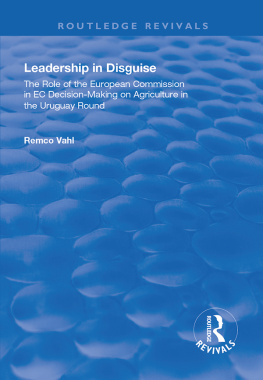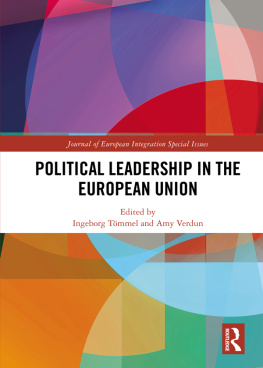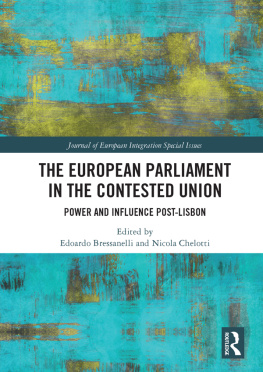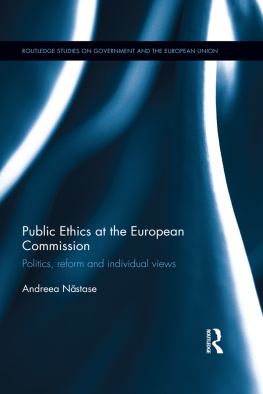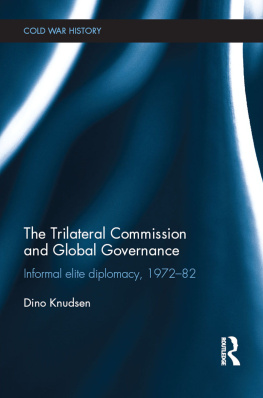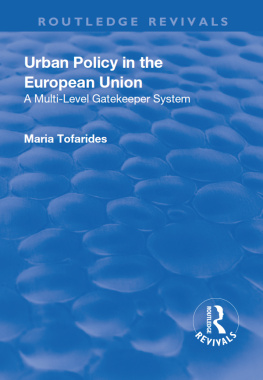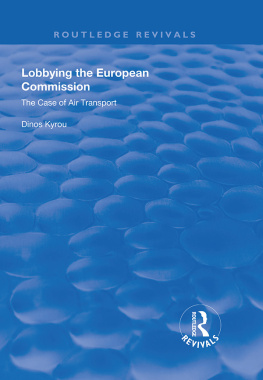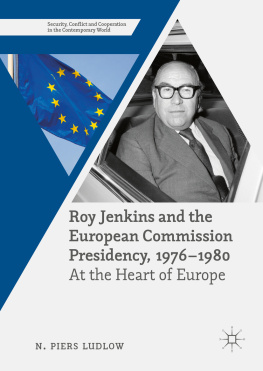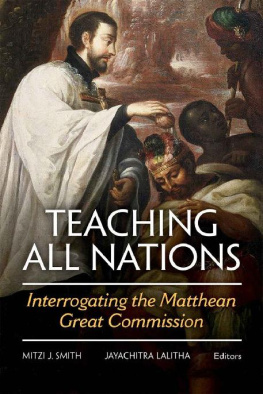First published 1997 by Ashgate Publishing
Reissued 2018 by Routledge
2 Park Square, Milton Park, Abingdon, Oxon, OX14 4RN
711 Third Avenue, New York, NY 10017, USA
Routledge is an imprint of the Taylor & Francis Group, an informa business
Copyright Remco Yahl 1997
All rights reserved. No part of this book may be reprinted or reproduced or utilised in any form or by any electronic, mechanical, or other means, now known or hereafter invented, including photocopying and recording, or in any information storage or retrieval system, without permission in writing from the publishers.
Notice:
Product or corporate names may be trademarks or registered trademarks, and are used only for identification and explanation without intent to infringe.
Publishers Note
The publisher has gone to great lengths to ensure the quality of this reprint but points out that some imperfections in the original copies may be apparent.
Disclaimer
The publisher has made every effort to trace copyright holders and welcomes correspondence from those they have been unable to contact.
A Library of Congress record exists under LC control number: 97061061
ISBN 13: 978-1-138-33392-5 (hbk)
ISBN 13: 978-1-138-33395-6 (pbk)
ISBN 13: 978-0-429-44567-5 (ebk)
Decision-making in organizations is an obscure process, and nowhere more so than in the European Community (EC), where, moreover, basic democratic principles are violated. This is a brief summary of the view students of EC decision-making will encounter sooner or later. Far from deterring them, such a view may act as an incentive to comprehend, explain and even to defend the ECs decision-making process. This study seeks to add to a better understanding of EC decision-making without seeking to justify or to attack its basic features. The research has been motivated by personal interest and a wish to explore the intricate mechanisms that produce, and sometimes fail to produce, decisions in the EC.
The most obvious forum for EC decision-making is the Council of Ministers of the ECs member states. This designation hides from view the one participant in Council decision-making that is not a member state: the European Commission. During my studies in political science, I became interested in the role that this actor plays in EC decision-making. The formal answer is that the Commission proposes and the Council disposes (cf, Hayes, 1993:41), and this is indeed the response that some books on the EC put forward.
Such an answer, however, begs new questions concerning the relationship between the Commissions proposing and the Councils disposing powers. Could it be that the Commission, under certain conditions, might actually play a leading role in decision-making and, if so, what would be the nature of such leadership? Short of writing a general book on this question, I set out to give a detailed picture of the Commissions role in EC decision-making, based largely on original empirical material rather than books. To my mind, such a detailed picture required a case-study approach.
The reason why the agricultural negotiations of the Uruguay Round have come to provide the case material is again basically a matter of personal interest. In the autumn of 1990, when this study was being prepared, the multilateral trade negotiations of the Uruguay Round hit the headlines. This was particularly so in December 1990 when, instead of fulfilling its substantial ambitions, the Uruguay Round broke down during the Brussels Heysel conference. The main stumbling block was a sector of limited economic but high political importance: agriculture.
I soon found out that the other side of the political significance of agriculture was the relatively high degree of public and press attention on this issue, a degree of attention unmatched by any other issue in the Uruguay Round. This opened the way for outsiders to study the agricultural negotiations of the Uruguay Round in some detail. For a political scientist, studying EC decision-making on these agricultural negotiations proved to be both feasible and fascinating. In this case, the role of the Commission was particularly relevant because of the Commissions position as the ECs negotiator and its opportunities to use the link between the Uruguay Round negotiations and the reform of the ECs agricultural policy. Fortunately, both the reform debate and the Uruguay Round negotiations were concluded before I had to finish my research. This has allowed me to present EC decision-making on these issues as a neat case with a clear-cut beginning and end.
Acknowledgements
I am indebted to all those who helped me put my personal interest to good academic use. Funding was of course essential, and was provided by the Netherlands Foundation for Scientific Research (NWO), from 1 February 1993 to 15 March 1995, and before that (from 1 January 1991) by the Centre for Advanced Research in International Affairs in the Netherlands (CARIAN), which was incorporated into the Netherlands Graduate School for Political Science and International Relations (Polybios) in 1994. Both CARIAN and Polybios were valuable forums for academic discussion, and I would like to express my thanks to the researchers and guests participating in them who gave useful comments on my work.
For a little more than four years, the University of Leiden, and its Department of Political Science in particular, provided me with a proper working environment. My fellow PhD students, and the Promo-club used to discuss our work, deserve special mention for the constructive criticism they expressed and for the personal solidarity they showed. Further academic exchanges took place at an international level in the European Consortium for Political Research (ECPR) and its Standing Group on International Relations. The ideas and comments people gave me there have been very stimulating.
Another group of people that I owe my genuine gratitude consists of the persons I interviewed for my research. These people were promised anonymity because of the sensitive nature of the Uruguay Round and will thus remain unnamed. By making available some of their precious time for sharing some of their insights and experiences with an outsider, they contributed significantly to my understanding of the issues involved (see ). Furthermore, the Dutch Ministry of Economic Affairs and the Permanent Representation of the Netherlands were hospitable to me.
For the original empirical material, I have relied quite heavily on the press. The publications of Agence Europe, Agra Europe and the Financial Times were made available to me by library personnel at Leiden University and at the Ministries of Agriculture and Foreign Affairs of the Netherlands. In addition, the Revue de presse, published daily by the Spokesmans Service of the European Commission and bringing together newspaper articles on Europe, came particularly handy. I read the more recent issues at the European Commissions Office in The Hague, and was lucky to get older issues from a considerate colleague.
English not being my mother tongue, it was necessary to ask a native speaker to proofread the manuscript. I consider myself fortunate for having found someone as efficient as Jane Deasy, who did the job swiftly and conscientiously. It is clear that all remaining anomalies and errors are entirely mine. Likewise, the ideas expressed in this book do not necessarily reflect the views of my current employer (the European Commission).
This list of acknowledgements would be incomplete if I did not thank my friends, parents and brothers who will often have asked themselves what on earth I was doing during all those years but then never questioned my activities, and who provided invaluable support.

